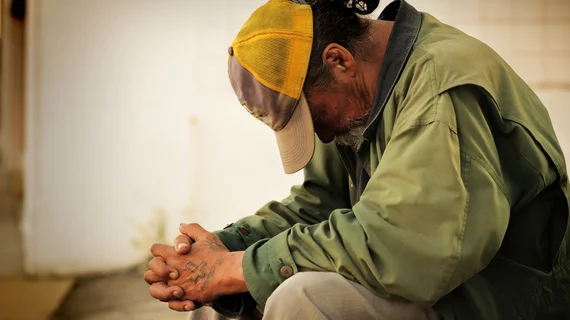Poverty is one of the leading causes of death in the United States, according to a recent study published in JAMA.
Poverty was associated with 183,000 deaths in the United States in 2019 among people 15 years and older, according to the paper, titled “Novel Estimates of Mortality Associated With Poverty in the US,” by University of California-Riverside (UCR) researchers.
The estimate, which is considered conservative because it is from the year prior to the COVID-19 pandemic when deaths spiked, is possibly the first to focus on the associated death rate of poverty in the United States, the researchers wrote.
The figures put poverty as the fourth greatest cause of death in the nation––above obesity, diabetes, drug overdoses, suicides, firearms, homicides and other potential causes.
“Poverty kills as much as dementia, accidents, stroke, Alzheimer's, and diabetes,” lead author David Brady, PhD, a UCR professor of public policy, said in a statement. “Poverty silently killed 10 times as many people as all the homicides in 2019. And yet, homicide firearms and suicide get vastly more attention.”
The study also found that people living in poverty, with incomes less than 50% of the U.S. median income, have about the same survival rates as other groups and people with more resources and adequate incomes until they age into their 40s, when they start dying at significantly higher rates. The study has several implications when it comes to different demographics, such as social policies that can reduce poverty and lower mortality.
“Because certain ethnic and racial minority groups are far more likely to be in poverty, our estimates can improve understanding of ethnic and racial inequalities in life expectancy,” researchers wrote.
In addition, the research underscores the huge economic impact of high mortality rates due to poverty.
“If we had less poverty, there'd be a lot better health and well-being, people could work more, and they could be more productive,” Brady said. “All of those are benefits of investing in people through social policies.”

